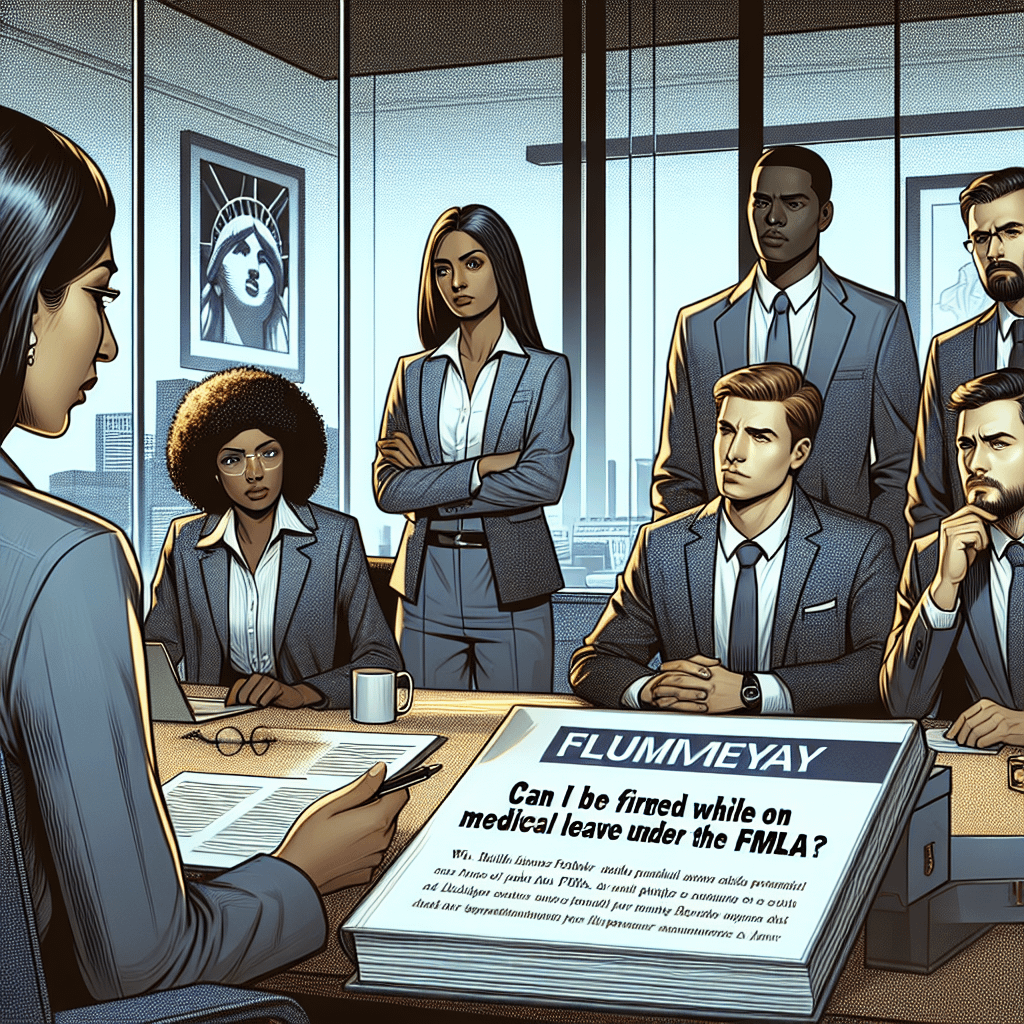Navigating the ins and outs of employment rights while dealing with a health issue can be overwhelming. Whether you’re taking time off to recover from surgery or need to care for a loved one, understanding your rights under the Family and Medical Leave Act (FMLA) is crucial. If you’ve ever wondered, “Can I be fired while on medical leave under the FMLA?” you’re not alone. Let’s break it down in simple terms.
What is FMLA?
The Family and Medical Leave Act, or FMLA, is a U.S. federal law designed to help employees balance work and family responsibilities. It allows eligible employees to take up to 12 weeks of unpaid leave per year without losing their job. This leave can be used for personal medical reasons, to care for a family member with a serious health condition, or for certain circumstances related to military service.
A Quick Primer on Eligibility:
- Employee Requirements: You must have worked for your employer for at least 12 months (not necessarily consecutive) and clocked at least 1,250 hours over the past 12 months.
- Employer Requirements: Your employer must be a public agency or a private-sector employer with 50 or more employees within a 75-mile radius.
Can You Be Fired While on FMLA Leave?
In essence, the FMLA is designed to protect your job. However, it’s crucial to understand that while it provides robust protections, it doesn’t make you completely “untouchable.”
Here’s what the law says:
- Job Protection: The FMLA entitles you to return to your original job or an equivalent position with the same pay, benefits, and working conditions.
- Circumstances for Termination: Employers can’t fire you simply for taking FMLA leave. However, if there’s a legitimate reason unrelated to your leave, such as company-wide layoffs or your own performance issues that surfaced prior to your leave, termination might still occur.
Examples to Clarify:
- Example 1: Company Restructuring
Suppose your company undergoes a major restructuring while you’re on FMLA leave. If your entire department is eliminated, your employer could legally terminate your position as part of that broader decision, provided they can demonstrate it’s unrelated to your leave.
- Example 2: Pre-Leave Performance Issues
Imagine you were receiving poor performance reviews or were under a disciplinary process before taking your FMLA leave. If your employer can show that they would have fired you regardless of your leave, they may still have grounds for termination.
Practical Tips to Safeguard Your Rights:
1. Document Everything: Keep a detailed record of your leave request, employer’s response, and any relevant discussions. This documentation can be invaluable if you ever need to dispute a termination. 2. Communication is Key: Maintain open communication with your employer about your need for leave. Inform them in writing and as early as possible, especially if your need for leave was foreseeable.
3. Understand Your Employer’s Policies: Some employers offer more generous leave policies than the FMLA requires. Familiarize yourself with your company’s specific procedures for medical leave.
4. Seek Legal Advice: If you believe your termination is unfair or directly related to your taking FMLA leave, contacting an employment law attorney can help in evaluating your case and understanding your options.
5. Check State Laws: Some states have additional family and medical leave laws that may offer more protection than the FMLA. Make sure to check the specific laws applicable in your state.
Final Thoughts:
The FMLA is a vital tool for protecting your job during times when personal or family health takes priority. While its protections are strong, being proactive about understanding your rights and responsibilities under the law goes a long way in ensuring that your employment isn’t unfairly jeopardized. With the right preparation and knowledge, you can focus on what truly matters—your health and your family.








